MercoPress. South Atlantic News Agency
Health & Science
-
Monday, January 16th 2017 - 08:38 UTC
Doktor Mengele's bones useful to medical students in Brazil
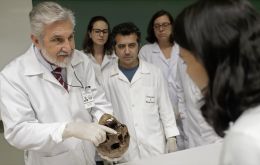
The bones of Josef Mengele, an infamous German doctor who conducted horrific experiments on prisoners at the Auschwitz concentration camp during World War II to the point of becoming known as “Angel Of Death,” are now at the service of Brazilian medical students.
-
Saturday, January 7th 2017 - 08:35 UTC
Chile reports avian influenza at a turkey farm: all birds to be culled
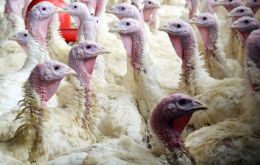
Chile has detected avian influenza H7 at a turkey production plant run by poultry producer Agrosuper in the country's central Valparaiso region. All affected birds (350,000) will be culled. No data regarding N type were given.
-
Thursday, January 5th 2017 - 07:50 UTC
Beijing's “airpocalypse” red alert for smog and yellow alert for fog

On Wednesday, Beijing was under a “red alert” for smog, the highest of four levels, and a “yellow alert” for fog. Other areas, particularly in northern China were still under red alert as of Wednesday for both fog and smog. The high pollution has been going on for a number of weeks, causing flight delays, and leading to traffic bans, as part of what is called “smog season” or “airpocalypse.”
-
Saturday, December 31st 2016 - 06:47 UTC
Different bird flu cases detected throughout Asia as winter conditions worsen

Hong Kong has confirmed a new human case of H7N9 bird flu, while the H5 bird flu virus has been detected in two cats that died in the South Korean city of Pocheon, it was reported on Friday.
-
Tuesday, December 27th 2016 - 08:52 UTC
Guatemalan authorities open 12 shelters due to low temperatures
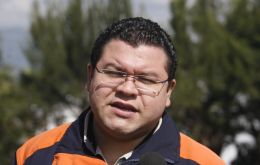
Twelve shelters have been opened in different parts of Guatemala to serve low-income people, due to the low temperatures, the National Coordinator for Disaster Reduction (Conred) said on Monday.
-
Friday, December 23rd 2016 - 00:54 UTC
Scientific circumnavigation of Antarctica takes off from South Africa
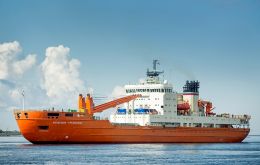
An international scientific voyage, comprising 60 researchers from 30 different countries (including Argentina), has set off from South Africa on a three-month tour of the Antarctic to study the extreme environment and impact of climate change on the Southern Ocean.
-
Wednesday, December 21st 2016 - 19:37 UTC
Argentine scientists arrive at Antarctica's Belgrano II Base to study climate change
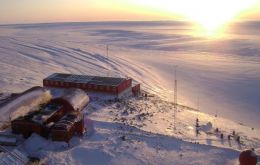
Twenty-one Argentine experts who will investigate climate change have arrived at the country's southernmost Antarctic Belgrano II Base, it was reported.
-
Sunday, December 11th 2016 - 22:04 UTC
In 8-0 decision US Supreme Court rules in favor of Samsung in milestone patents' case for the industry
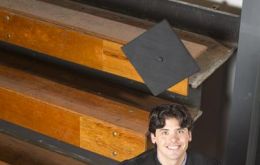
In a unanimous decision on Tuesday, the U.S. Supreme Court threw out a lower court’s US$399 million judgment against Samsung for violating patents involving Apple’s iPhone. The decision overturns a victory that Apple had won in the Washington, D.C.-based U.S. Federal Circuit Court of Appeals.
-
Saturday, December 3rd 2016 - 09:41 UTC
Old-fashioned cigarette doomed, says world's largest tobacco company

A historic lawsuit loss to Uruguay over tobacco-related cancer damages and other technological developments have Philip Morris focusing on new alternatives. “I think the time will come when we will have enough acceptance of these alternative products to begin to propose, along with the governments, a gradual elimination of conventional cigars,” the company CEO Andre Calantzopoulos announced.
-
Saturday, December 3rd 2016 - 08:20 UTC
Seventy female scientists to Antarctica to battle climate change and make a name for women in science
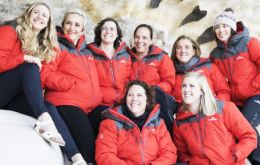
More than 70 female scientists from all around the world have embarked upon a voyage to the South Pole with the common objectives of battling climate change and making a name for women in science. As part of the Homeward Bound initiative, an Australian program aimed at increasing the female representation in science, the group set upon what will be the largest ever all-women expedition to Antarctica.